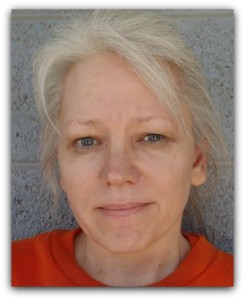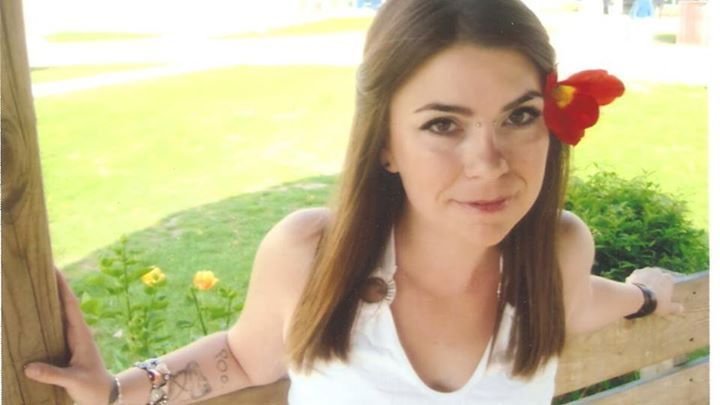
“The trial itself was a miscarriage of justice, but the appeals process to which I am entitled proved even more alarming”
“I’m not a guilty person looking for a legal loophole. I’m an innocent person looking for justice.”
Arizona Supreme Court declines review of appeal that freed Debra Milke
Arizona Supreme Court refuses to let Maricopa County retry Debra Milke for the 1989 murder of her son, and refuses to compel testimony from a controversial detective. Read More »
Arizona woman released after decades on death row
An Arizona woman who spent more than two decades on death row was released on bond Friday afternoon after a judge ruled there’s no direct evidence linking her to the death of her young son. Debra Milke walked out of the Maricopa County Sheriff’s jail after supporters posted $250,000 bond. Read More »
Listen to "Debra Milke Discusses Her Exoneration" on Spreaker.
Get the Facts
Debra Milke Downloadable Documents
Case Introduction
Written by Douglas Matthews
On Saturday, December 2, 1989, Christopher Milke, Debra Milke’s 4 year old son, was shot to death in the desert, in an area just North of Phoenix, Arizona. It was a horrible, senseless crime. Despite little to no evidence she had anything to do with Christopher’s death, Debra Milke was convicted of his murder, sentenced to death, and is currently awaiting execution in an Arizona prison. After suffering the ultimate horror of any parent, the murder of her only child, Debra has faced the further trauma of being convicted, jailed for the past 22 years, and sentenced to death for a crime she didn’t commit.
The only evidence against Debra Milke for the murder of her son is a confession that she allegedly gave to Armando Saldate, a detective with the Phoenix police department. After her son’s body was found, Saldate had Debra called in to the Pima County Jail, and interviewed her in a small room with just the two of them present. Debra denies that she ever confessed to Saldate, and no record of the interview exists. Saldate did not record his interrogation of Debra, and claimed later that the notes he took had been destroyed. There was no statement ever signed by Debra, as is normal procedure when the police interview someone in a murder case. Yet Debra Milke was convicted almost exclusively because of the testimony that Armando Saldate gave about what he has claimed took place in that interview room.
In the time leading up to her son’s murder, Debra was sharing an apartment with a friend, a Viet Nam veteran named James Styers. She had been having a series of problems with her ex-husband, Mark Milke, who was also Christopher’s father. Mark was a drug addict and had been in prison, and Debra had gotten a restraining order against Mark so she could have control over when and where he saw Christopher. While working and trying to save up enough money to get a new place to live for her and her son, she moved in with Styers on a temporary basis. It was an arrangement of convenience for both of them – she could have a safe place for Christopher to stay while she was working, and Styers got help with the rent. She was planning to move out after Christmas to her own place with Christopher, but tragedy interjected and that move never took place.
On the day of the murder, James Styers asked Debra if he could use her car to go to the Metro Center Mall to do some shopping. Christopher begged his mother to let him go along, because he wanted to see Santa Claus again. Debra asked James if that was OK, and he agreed to take Christopher to the Mall with him while Debra stayed home to do some chores. Later that afternoon, Styers reported Christopher as a lost child to the mall security, and called Debra, telling her Christopher was missing. To support his story, Styers told the police who had come to investigate that he had a friend, Roger Scott, who had seen him at the mall with Christopher.
Throughout the night police questioned both men, Styers and Scott. Styers was released in the morning hours of that Sunday, whereas suspicions against Scott increased due to his inconsistent statements. When homicide detective Armando Saldate took over that interview at around 1 p.m. he threatened to ransack the apartment of Scott’s elderly mother. Eventually, according to police, Scott admitted that he knew that Christopher was dead and he agreed to show them where the dead body was. Detective Saldate reported that, en route to the murder scene, Scott made the claim that the boy had been killed because Debra Milke wanted it done. The report from another detective, who was driving the car, does not mention any such claim by Scott. James Styers has denied Debra was involved in Christopher’s death, and Roger Scott never accused her in his court testimony. Yet Scott’s alleged statement in that patrol car is what led police to suspect, and ultimately charge, Debra Milke with ordering the murder of her son.
Debra Milke was subsequently arrested, jailed, and charged with Christopher’s murder, with the only real evidence against her being the brief charge by the person who is most likely the actual killer, Roger Scott, and Detective Saldate’s testimony that she “confessed” to being involved. She was subsequently caught up in a whirlwind of crazy media stories, negative public opinion, and what appear to be out and out lies by both the police and prosecutors. Detective Saldate had a court-documented history of tainting confessions, committing perjury under oath, and lying to his supervisors. The prosecutor in Debra’s case has wrongfully convicted two other defendants who were later exonerated by DNA evidence.
With little money, and even less support from most of her family, Debra was stuck with substandard legal representation, and never had a chance at the trial. There were many key details about the case that were never told to her jury that might have affected the verdict. As a result, Debra Milke faces execution in the near future if something is not done.
Additional Resources
crimefilenews.com: They’re Still Trying to Kill Debra Milke
Injustice Anywhere: The Death Penalty









